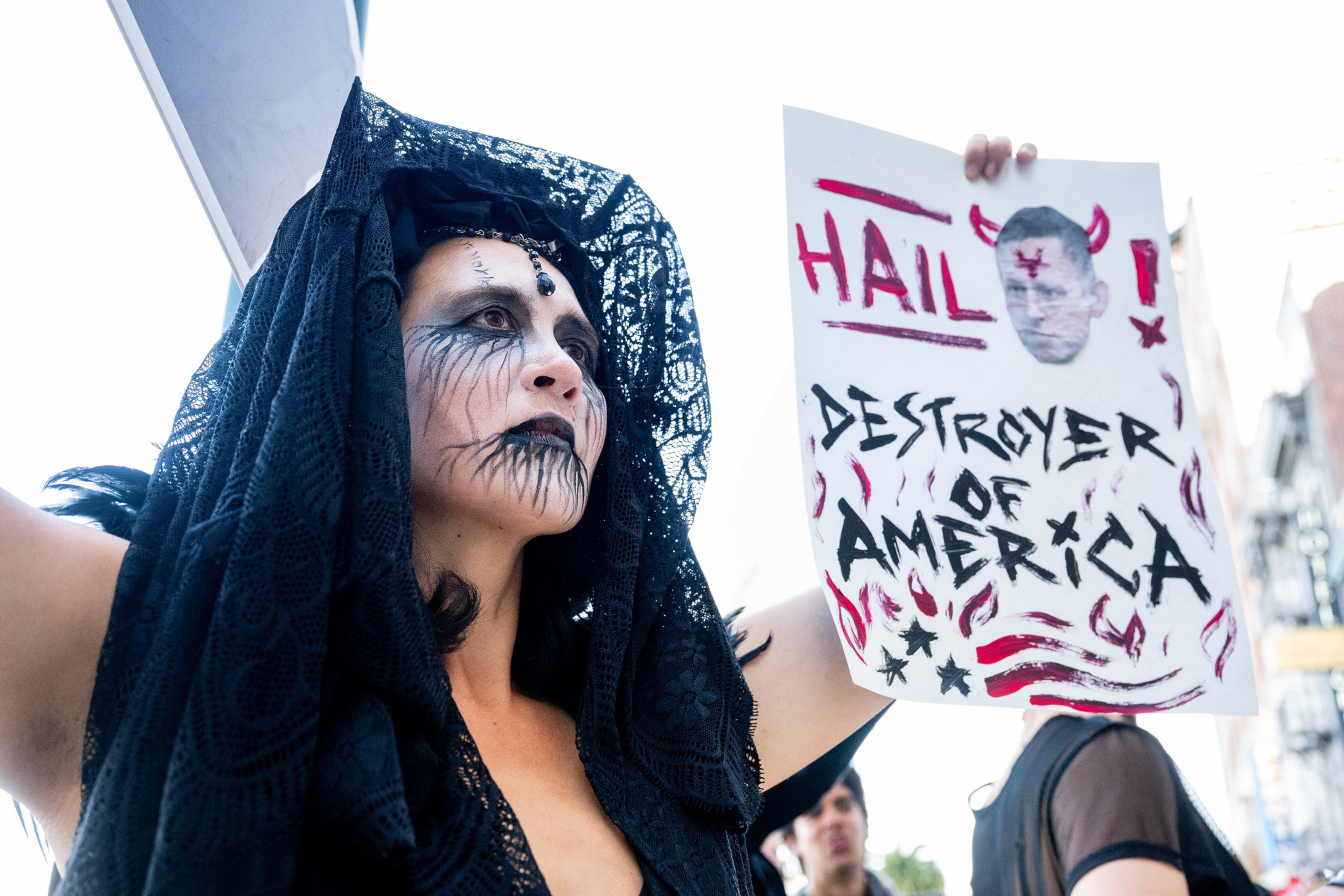Over the past few weeks, billionaire venture capitalist Peter Thiel has delivered a series of lectures about the Antichrist at San Francisco’s Commonwealth Club. Thiel is a Christian (a self-professed unorthodox one) who has drawn headlines for fusing his right-wing beliefs with the increasingly techno-futurist religious fervor of Silicon Valley.
His argument essentially goes like this: Authoritarian agents have disguised themselves as bearers of safety and security, taking advantage of people’s sense of vulnerability in a dangerous world. When people are convinced that doomsday is around the corner, they’ll give up individual liberties for the promise of survival.
For Thiel, this trade-off of safety for liberty is what he calls “the Antichrist.” He sees the Antichrist as those who warn of disaster and seek to prevent it, like climate change activist Greta Thunberg. He sees the Antichrist in globalization and the regulation of technology, and a reluctance to let billionaires make more money. Beware! If the GDP doesn’t rise by this many percentage points, the future is apocalyptic, dog-eat-dog, zero-sum, Antichrist-like.
Listen, maybe you buy what Thiel is hawking. But as a Christian who strives to follow Jesus, and a priest in the Episcopal Church, I find Thiel’s warnings heretical.
I know that Scripture can be used in many ways, as bludgeon or balm. And without doing the hard work of understanding the rich context of these ancient and living texts, we are doomed to project our own goals onto them. That is exactly what Thiel is doing, in the most cynical way imaginable.
There is just one book in the Bible that mentions the Antichrist. In John’s first letter, he writes, “As you have heard that antichrist is coming, so now many antichrists have come.” The reference sounds dramatic, but in context, it was heard as a rebuke against the fear of a specific apocalyptic figure. For John, there wasn’t just one but many Antichrists — anyone who works against the mission of God in the world, a mission he defined as a loving one.
Thiel seems to call up the Antichrist as an evil, secret force that lurks in the shadows, ready to reveal itself at any moment. But this is not the biblical or traditional idea. The concept of the Antichrist was not intended by the biblical writers as a tool to sow fear or division. The Antichrist is meant, obviously, as a foil to Christ. It makes no sense to issue a warning against this supposed figure without directing people toward “the answer” — that is, toward Jesus.
In Jesus, as opposed to Peter Thiel, we do not meet someone who is concerned with economic futures. In fact, he demanded that his disciples give up everything to follow him. Neither do we meet someone who is worried about globalization. Instead, he called on his followers to go out to the world to make disciples — not just within the Judean community of his homeland.
Thiel is not using the term Antichrist in any kind of historical or biblical context. So why is he talking like this?

By his own admission, his larger goal is in part to garner attention. Thiel knows that Antichrist is a “flashy” term and will bring attention to the political and economic theories he is espousing. If he billed his talks as “Fears about tech regulation and globalization,” they would get much less attention. Instead, he is using Christian language, devoid of context, as provocation.
This strikes me as heretical. Given the resources available to him, Thiel has an amazing opportunity to be a real witness to the love of God. Instead, he is cynically co-opting the language of faith to further his own goals.
I’m no expert on economics or politics. I worry about mass surveillance of the kind Thiel has enabled at Palantir, a company he cofounded. I worry about growing wealth inequality and seeing my friends and neighbors detained by Immigration and Customs Enforcement. I worry about increasingly violent language being normalized and social media platforms incentivizing enraging language to get clicks.
But the answer to this is not sowing more fear about purported Antichrists in the form of teenage activists. I wish Thiel would consider meeting Jesus as he is — a marginalized radical at the outskirts of an empire, friends of the poor and sick, who was crucified for threatening the powerful. I wish Thiel would speechify less about the Antichrist and spend more time trying to be like Jesus.
Maybe then he would see him as Christians do — as our true safety, our liberator, and the true embodiment of an all-loving God.
The Rev. Kevin Deal is the priest at St. John the Evangelist Episcopal Church in the Mission.



